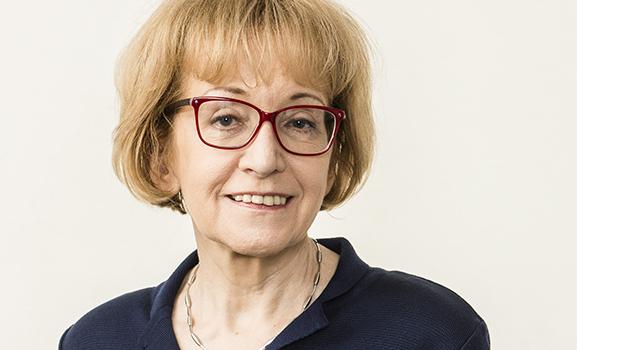Czech Human Rights Commissioner to stay in office, most civil society members of Human Rights Council support her

Czech MP Helena Válková (Association of Dissatisfied Citizens – ANO), who heads the Petition Committee in the lower house, is remaining on the job as the Government’s Human Rights Commissioner and will not be stepping down after it was revealed that she co-authored an article in the late 1970s with prosecutor Josef Urválek, who was involved in the show trials of the 1950s. Yesterday most members of the Czech Government Human Rights Council expressed support for her remaining in the role.
Two civil society members of the council, the attorney Tomáš Němeček and Hubert Smekal of the Faculty of Social Sciences at Masaryk University, have resigned their memberships, which are voluntary positions. Němeček informed the Czech News Agency (ČTK) of his decision yesterday.
Válková told journalists she had apparently managed to better explain all the circumstances of the scandal and thanks to that she had been able to win support within the council. Němeček told ČTK that “I have done what I said I would” with respect to resigning.
The attorney had challenged the Human Rights Commissioner to resign from her post and as vice-chair of the Czech Government Human Rights Council because of her co-authorship of the article and the attitude she had displayed after the scandal was made public, otherwise he himself would resign. Smekal was the only other member to join him yesterday in resigning.
Němeček said he did not believe Válková’s time in office should be over because of her past actions, but because of her present ones. He was bothered by the way she had defended herself.
“I believe her statements have damaged the reputation of the Government Human Rights Council,” he told journalists. In his view, more members of the Council were undecided today, but what won out was an attempt to make it an effective body.
“We acknowledge the contribution of the current Government Human Rights Commissioner to advocating for the human rights agenda and making the activities of the Council more effective,” reads the standpoint adopted by the Council today. According to the spokesperson for the Human Rights and Minority Protection Department at the Office of the Government, Olga Jeřábková, all members of the Council voted in favor of the statement, including Němeček and Smekal.
The Council statement anticipates that the Human Rights Commissioner will actively advocate for the human rights agenda. “We recommend that the Government takes advantage of the opportunities afforded to it and includes the human rights agenda among its priorities to the maximum possible extent,” the resolution states.
The Czech Government Human Rights Council has 25 members. Representatives of the Office of the Government, the ministries, and other institutions number 15 of those.
There are 10 volunteer members representing the public and Němeček and Smekal were among them. After Válková became Human Rights Commissioner last year, another civil society member, the college teacher and philosopher Daniel Kroupa, also resigned his volunteer membership.
Válková refuses to resign. “I conditioned my remaining in office on whether most of the civil society members of the Human Rights Council would agree and support me. Apparently I have managed to better explain all the circumstances of this case,” she told journalists after the Council met.
The Human Rights Commissioner said she regrets Němeček’s resignation. During the meeting she also apologized for giving “statements to the media under the influence of emotions” and for having joined the Communist Party of Czechoslovakia for pragmatic reasons.
After the scandal was publicized last week, Válková declined to accept the nomination as a candidate for the post of the Public Defender of Rights (the ombudswoman). She was originally proposed by Czech President Miloš Zeman, who then withdrew the nomination.
The positions are different, according to Válková, and for that reason she will not be running for the Public Defender of Rights post and will remain Human Rights Commissioner. “The Government’s Commissioner is not absolutely independent of the Government’s opinion. The Public Defender of Rights is an absolutely independent position, an apolitical one, and one from which the office holder could only be removed under exceptional circumstances,” she said.
Válková had previously said she was declining to become a candidate for the ombudswoman job because she had been a member of the Communist Party during the previous regime. The lower house of Parliament decides who will become the Public Defender of Rights.
The Government appoints the Human Rights Commissioner and is able to dismiss the holder of that appointment. The cabinet interrogated Válková on Monday but did not take a vote on whether she should remain in office or step down.
Czech Culture Minister Lubomír Zaorálek (Czech Social Democratic Party – ČSSD) said the following day that the debate about Válková remaining in office was not closed and that it is possible the governing parties would continue it. He said the question of human rights should be addressed by a person “with high authority” and that it would not be possible for the situation to be defended in the long run with respect to the international community, where the Human Rights Commissioner should be a person of great renown.
The meeting of the Human Rights Council on Válková remaining in the post or stepping down lasted more than two hours. During that time she explained her perspective on the scandal to the Council members.